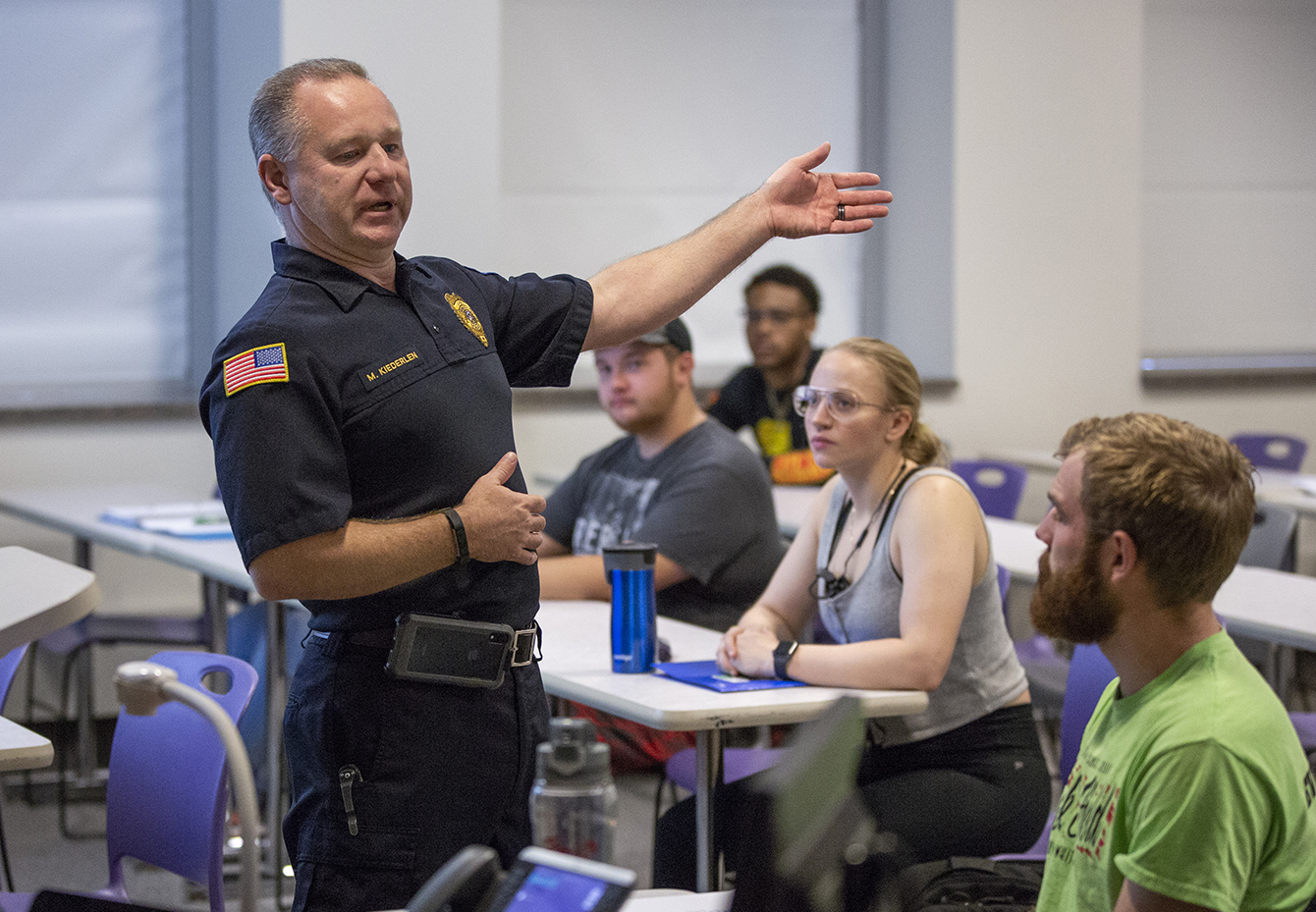UW-Whitewater police chief to lead FBI task force
September 19, 2019
Photos by Craig Schreiner | Written by Jeff Angileri
Across the United States, police officers, city leaders, researchers and everyday citizens rely on accurate and timely crime information in their efforts to make communities safer.
Law enforcement organizations track and submit their data to create “Uniform Crime Reports,” which are critical to identifying trends in criminal activity, creating effective policing strategies, and crafting public policy.
Now, as police departments across the country are abandoning an old reporting system and using a new and improved one, the FBI has tapped the police chief of the University of Wisconsin-Whitewater to help lead the way.
Matt Kiederlen is chairperson of the FBI’s Criminal Justice Information Systems Beyond 2021 Task Force. In addition to his role as chair, he is representing all of the nation’s university and campus police officers.
“It’s both an honor and a challenge,” he said. “Our task force is helping shape this new crime reporting system, making sure it works effectively for both people who contribute data to the reports and those who use and analyze the information for a variety of purposes.”
Kiederlen said the crime reports in this new system, known as the National Incident-Based Reporting System, will be updated more frequently than the old ones, and the information will be more detailed, giving users more timely and accurate information.
The old system will shut down Jan. 1, 2021, so it’s important everyone is ready and on the same page. Standardizing the definitions of crimes and making sure everyone gets trained on the new system are among the topics of discussion.
Kiederlen, who is chief of the campus named safest in Wisconsin, says his experience and participation on the taskforce benefits the university in several ways.
“At UW-Whitewater, we’re well ahead of the curve. Our department has the opportunity to see trends in crimes, best practices in reporting and new technology before many others in law enforcement,” he said. “I also teach a criminal investigation course and bring back what I learn into the classroom to inform students. They get to hear about the latest data and innovative police strategies before some chiefs of police across the country hear about them.”
In addition to the FBI, Kiederlen has also forged positive relationships with leaders of the most respected law enforcement organizations the world, including the City of New York Police Department.
“To be able to reach out and consult with law enforcement individuals of that caliber on a variety of issues – you can’t put a price tag on that.”

